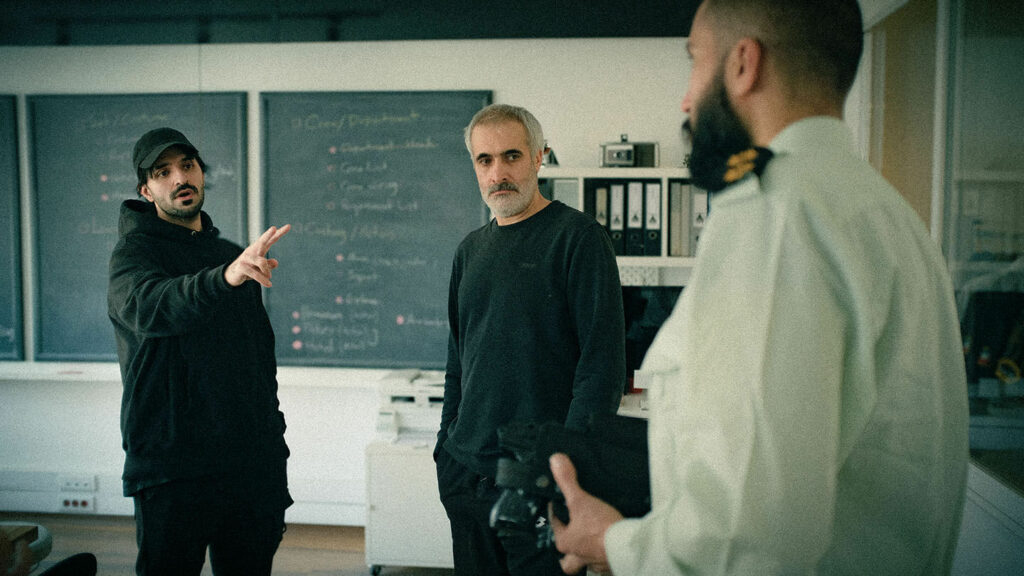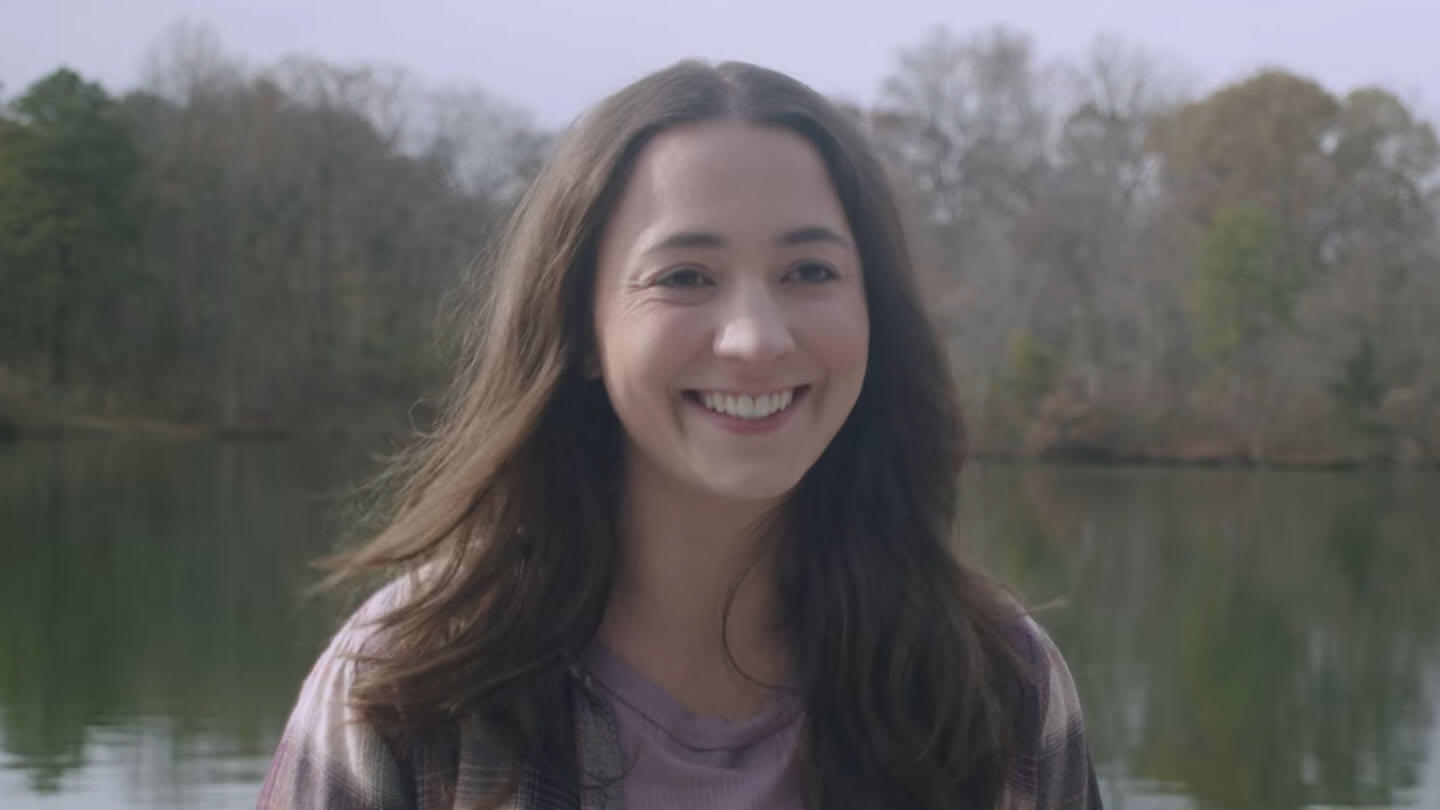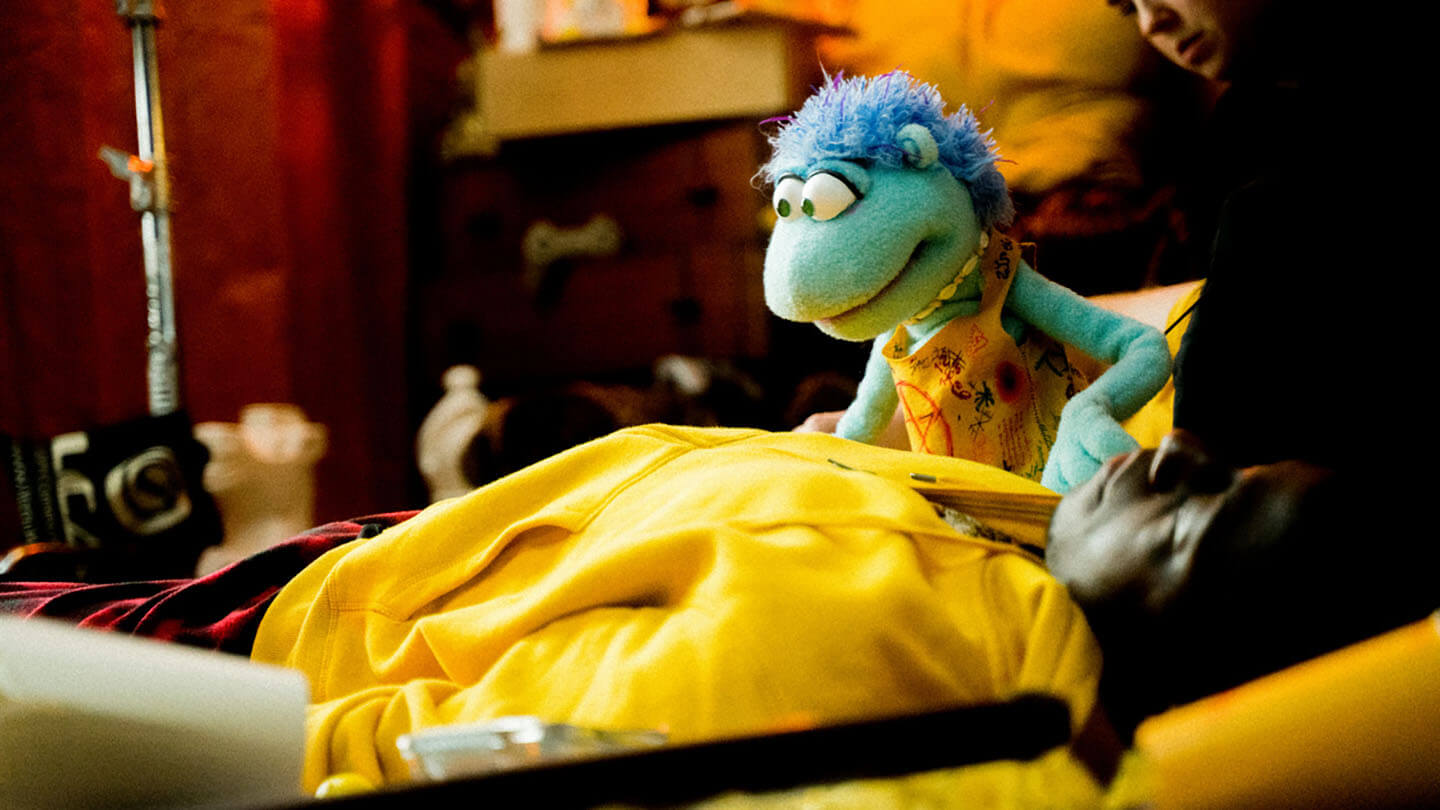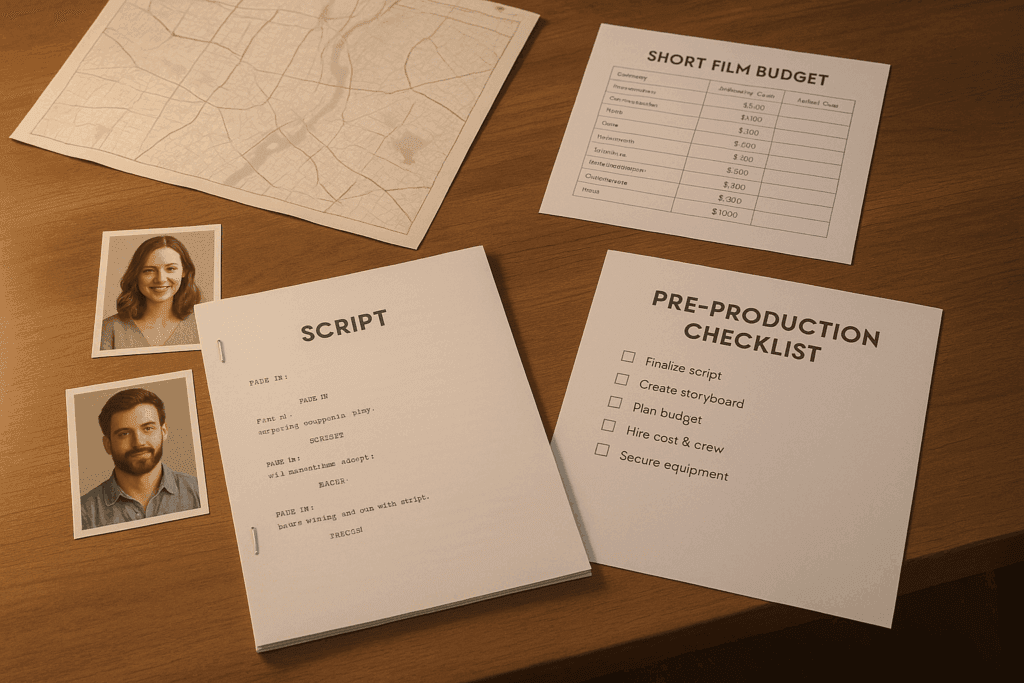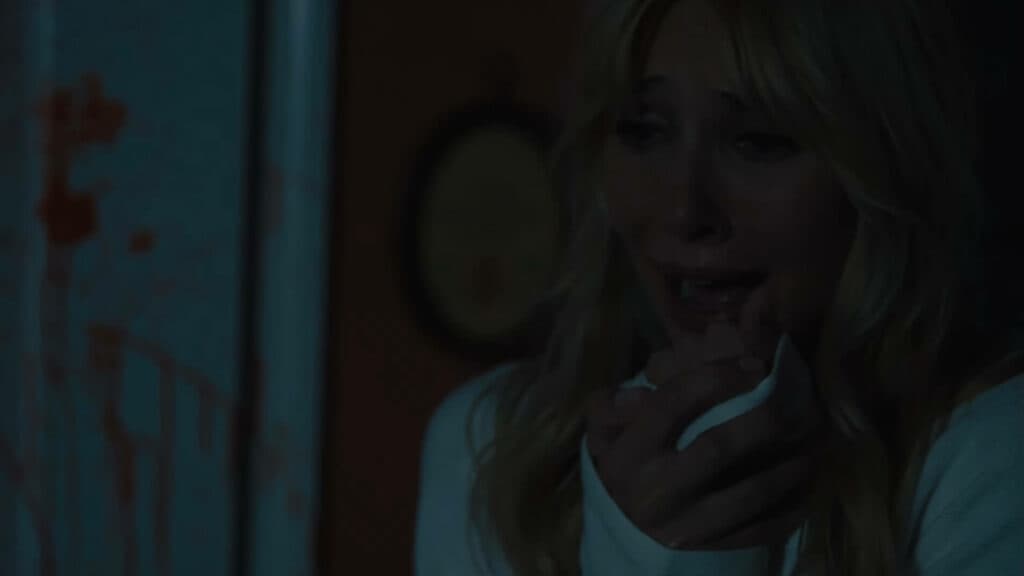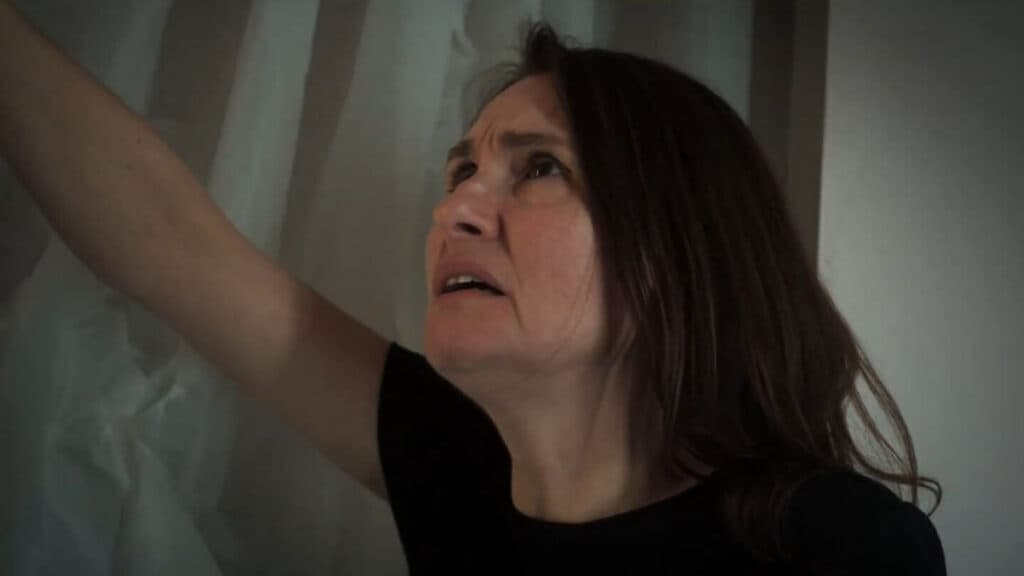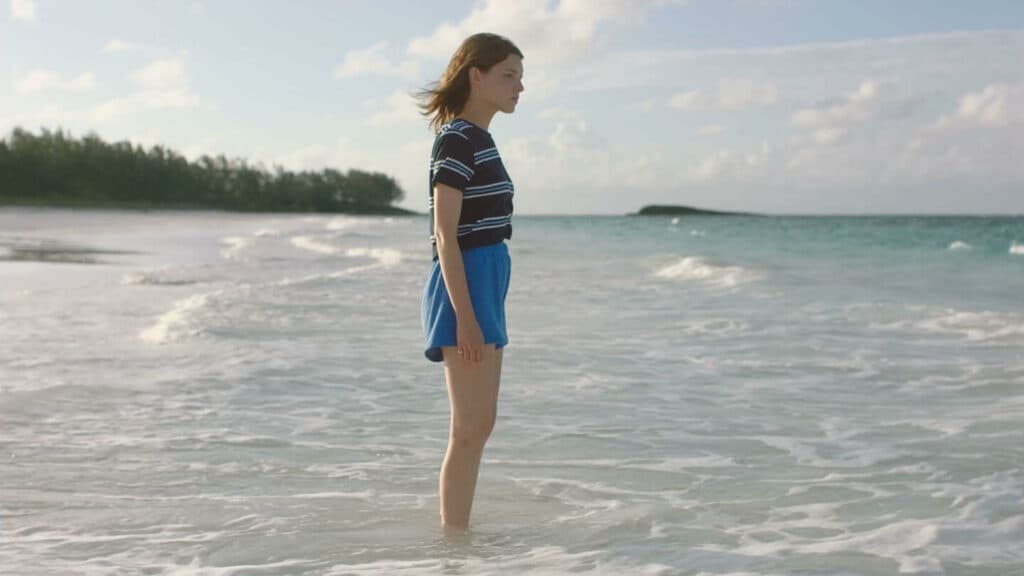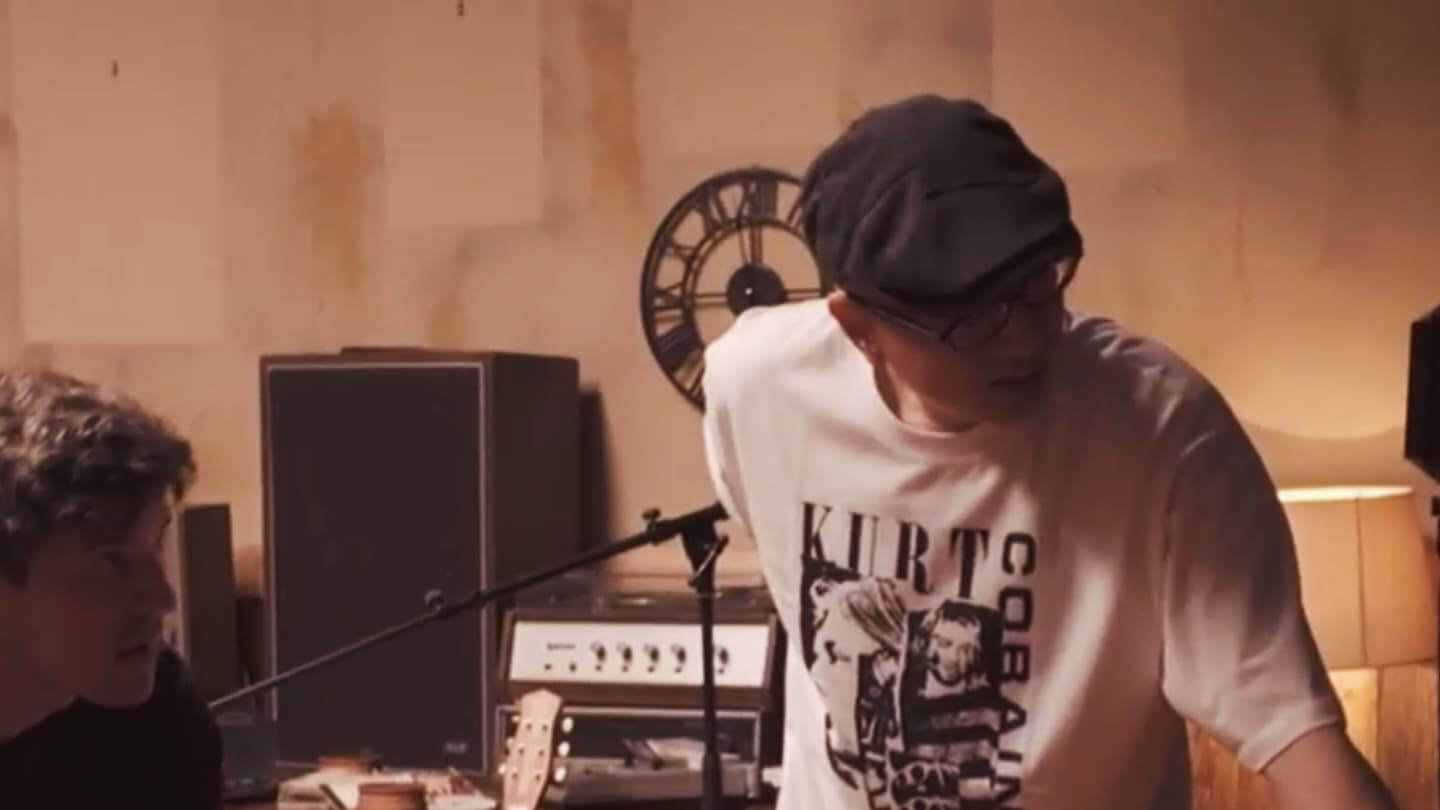Article too long to read?
Amir Zargara is a filmmaker whose multicultural background and personal experiences have profoundly shaped his unique storytelling approach. As an Iranian-Canadian director navigating the complexities of two distinct cultural worlds, Zargara brings a compelling narrative to the screen that challenges societal norms and celebrates resilience. His latest short film, A Good Day Will Come, stands as a testament to his commitment to addressing moral complexities and advocating for justice—a dedication that has earned him accolades at prestigious festivals like Amnesty and HollyShorts, and recognition from platforms like The Black List and Coverfly’s Red List.
Indie Shorts Mag: Your multicultural background spans Iran and Canada. How have these diverse cultural experiences influenced your storytelling and perspective as a filmmaker?
Amir Zargara: My experiences straddle two distinct worlds: Iran, where freedom of expression faces strict limitations, and Canada, where I can voice my opinions and make films without fear of institutional backlash. In Iran, filmmakers risk their livelihoods—and even their lives—by tackling controversial subjects. Their persistence, despite such significant barriers, has deeply influenced my own work. I feel a strong responsibility to use my artistic freedom in Canada to amplify the stories and struggles that might otherwise be silenced.
At the same time, living in Canada has given me access to a broader creative landscape. I’ve had the privilege to explore themes without having to worry about censorship or repercussions. This contrast—between the bravery of Iranian artists and the relative liberty I enjoy—fuels my passion to tell stories that resonate with both communities. Ultimately, my multicultural background drives me to create films that challenge injustice while celebrating the resilience and courage of those who persist in spite of it.
Indie Shorts Mag: Living with a stutter can present unique challenges. In what ways has this personal journey impacted your approach to filmmaking and communication within the industry?
Amir Zargara: Living with a stutter in a pitch-driven industry has compelled me to be more intentional about how I communicate my ideas. From childhood, I’ve relied on a range of techniques learned in speech therapy to navigate conversations and presentations. During production, however, the demanding schedule and lack of sleep can exacerbate my stutter because I’m simultaneously trying to recall these techniques and figure out what to say—leaving little mental bandwidth. Despite these challenges, I don’t view my stutter as a barrier; it’s simply another hurdle in the filmmaking process. By embracing it, I’ve learned to adapt quickly, refine my communication style, and remain focused on telling the most authentic story possible.
Indie Shorts Mag: Your film A Good Day Will Come delves into themes of injustice and resilience. What inspired you to tell this story, and what message do you hope audiences take away from it?
Amir Zargara: “A Good Day Will Come” emerged from a deeply personal connection to Navid Afkari’s story. I first learned of him when his mother launched a campaign to garner international support—perhaps feeling helpless against the judicial system back home. The parallels between Navid and me struck a chord: we were born in the same year, in cities just hours apart, and both wrestled (though I only did so as a child, never to his extent). The critical difference is that I moved to Canada, where I can speak freely, protest, and make films without fear of repercussions.
For a while, I hoped someone more established might bring Navid’s story to the screen. When that didn’t happen, I felt as though I owed it to my homeland—like fulfilling a mandatory service—to tell this story, even through a fictional lens. The title itself, “A Good Day Will Come,” reflects the sense of hope and resilience I want audiences to take away. In spite of injustice, I believe there’s always a reason to believe in a better tomorrow.
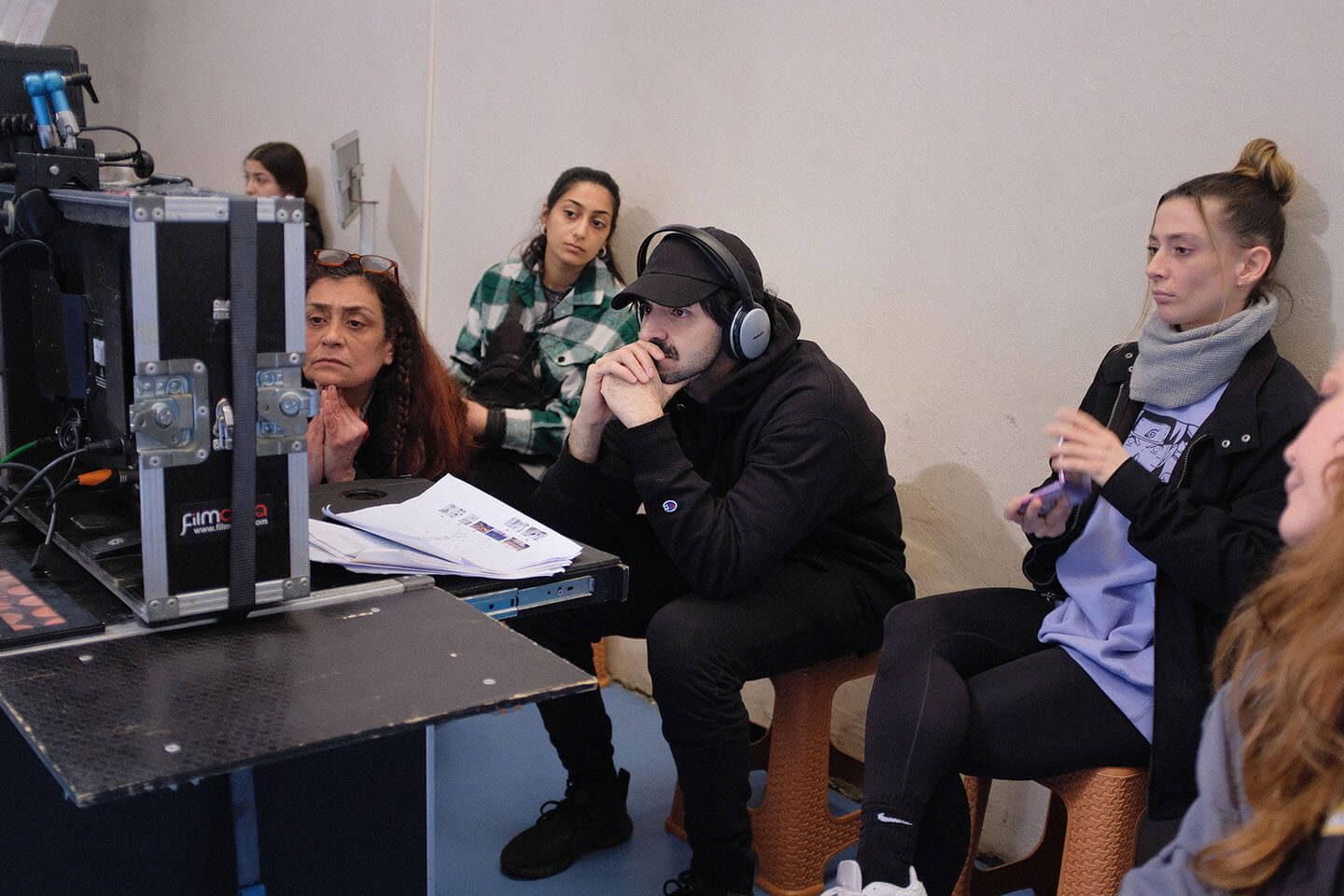
Indie Shorts Mag: You’ve mentioned a focus on the moral complexities and gray areas of human character in your work. Can you elaborate on why this is important to you and how it shapes your narratives?
Amir Zargara: I’ve always been drawn to the gray areas in human nature because they reflect the complexity of real life—where people rarely fit neatly into “hero” or “villain” categories. In the context of A GOOD DAY WILL COME, this is embodied by the moral dilemmas facing Arash and the commander. Arash must decide whether to speak out against injustice and risk everything he’s worked for, or remain silent and compromise his honor. Meanwhile, the commander has to choose between following orders or acting according to his conscience—both options carry potentially life-altering consequences.
Of course, the short film primarily focuses on Arash, so we don’t delve as deeply into the commander’s character. But these moral nuances are exactly what I’m eager to expand on in the feature film adaptation. I want to show that every choice has ripple effects, and no character’s actions occur in a vacuum. The commander’s brief moment of hesitation may appear laudable, yet it puts his own safety, his family’s well-being, and the futures of the soldiers under his command in jeopardy. That same sense of repercussion follows Arash if he decides to speak out. It’s in these intricate, often uncomfortable choices that I find the most honesty, and it’s where I plan to dig deeper as the story grows into a feature.
Indie Shorts Mag: Having your work recognized at festivals like Amnesty, HollyShorts, Nashville, Reykjavík, and Rhode Island is a significant achievement. How have these accolades influenced your career trajectory?
Amir Zargara: Having work recognized at these festivals is certainly an honor—it can open doors, speed up conversations with potential collaborators, and help move future projects along more quickly. At the same time, I’ve learned to disassociate from things I can’t control, such as whether a film gets into a particular festival. What I can control is the quality of my work and the stories I choose to tell. So, while the accolades are meaningful and appreciated, my focus remains on creating the best possible films and channeling my energy into the projects ahead.
Indie Shorts Mag: As an Iranian-Canadian and member of the BIPOC community, what challenges have you faced in the film industry, and how do you believe these experiences have shaped your creative voice?
Amir Zargara: I’ve found that one of the biggest challenges—shared by many filmmakers—is simply getting enough opportunities to practice the craft. Filmmaking is expensive and resource-intensive, and without regular access to production budgets and industry connections, it can be difficult to refine both technical skills and storytelling abilities. While it’s possible to practice on a smaller scale—say, by blocking a scene with a couple of actors or shooting on a phone—these methods don’t replicate the experience of working on fully realized productions.
That said, the lack of ready-made opportunities has taught me resilience and driven me to seek out every possible avenue for support—grants, labs, workshops, you name it. Most of these efforts end in rejection, but I focus on what I can control: putting my best foot forward and keeping my name in the conversation. I’ve learned to embrace that process rather than let it discourage me. This persistence has shaped my creative voice by pushing me to tell stories that reflect determination and hope, and by instilling in me a belief that my perspective matters—even in an industry where it can be hard to get a foot in the door.
Indie Shorts Mag: Your journey began with Become the Wounded in 2021. How has your vision evolved since your debut, and what have been some pivotal moments in your development as a director?
Amir Zargara: Since BECOME THE WOUNDED in 2021, I’ve approached each project as a completely fresh endeavor, tailoring my creative process to what each story demands. After tackling a larger-scale production like A GOOD DAY WILL COME, I realized how invigorating it is to push myself both technically and creatively. Overcoming bigger challenges—whether it’s coordinating larger crews, more complex settings, or heightened technical demands—ultimately feels more rewarding, even if it’s more taxing mentally and physically.
This evolution has been pivotal in shaping my vision as a director. I’m committed to taking on increasingly ambitious projects that still center human stories, fostering empathy among audiences. Going forward, I plan to keep expanding the scope of my films while staying true to the authentic, character-driven storytelling that got me started in the first place.
Indie Shorts Mag: You’ve been recommended by The Black List and are in the top 1% of Coverfly’s Red List. How have these honors impacted your opportunities, and what advice would you give to emerging filmmakers seeking recognition?
Amir Zargara: Being recognized by The Black List and landing in the top 1% on Coverfly’s Red List have definitely raised my visibility as both a writer and director. These platforms are respected throughout the industry, so having that stamp of approval has opened doors and led to inquiries about potential collaborations. It’s been a tangible boost in terms of getting my work in front of people who might not have otherwise known my name.
As for advice, I still consider myself an emerging filmmaker, but one key takeaway is that strong material tends to rise to the top. Good writing is surprisingly hard to come by, and when a script truly resonates, it can significantly speed up the process of getting a project made. So, my best suggestion is to focus on honing your craft—keep refining your scripts and developing your unique storytelling voice. Once the work itself is solid, it becomes much easier to attract the right kind of attention.
Indie Shorts Mag: Can you share insights into your upcoming projects or goals, particularly your aspirations to transition from shorts to feature films?
Amir Zargara: I’m currently in pre-production for my next short film, VITAL, but most of my energy is centered on developing the feature-length version of A GOOD DAY WILL COME. It’s definitely an uphill battle—getting a feature made is no small feat. Still, I find that the steeper the challenge, the greater the satisfaction once it all comes together.
Indie Shorts Mag: Looking ahead, what impact do you hope to have on the film industry, and how do you wish to inspire empathy and understanding through your stories?
Amir Zargara: I hope to continue creating human stories that foster empathy by presenting moral complexities and placing characters in challenging situations. My aim is to immerse audiences so completely that they can’t simply judge a character’s decisions, but instead see themselves reflected in those choices. By walking in the shoes of the people on screen, viewers are encouraged to understand and empathize with motivations they might otherwise condemn. Ultimately, I want my films to remind us of our shared humanity and inspire a deeper sense of compassion and openness to different perspectives.
Looking ahead, Amir Zargara aims to transition from shorts to feature films, with the ambition to further explore the intricate moral landscapes he is so passionate about. His commitment to fostering empathy and understanding through his work is not just a personal mission but a call to action for audiences worldwide. As he continues to bridge cultures and confront injustices through his films, Zargara hopes to inspire a deeper sense of compassion and shared humanity, leaving an indelible mark on the film industry and beyond.
About the Author
No comments yet.
Got Something to add to this article?
Your email address will not be published. Required fields are marked *

